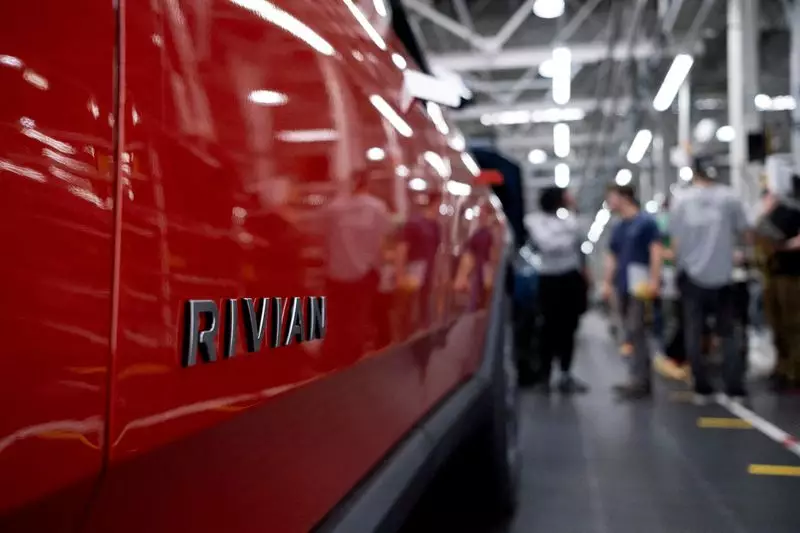In a significant development for the electric vehicle (EV) industry, Rivian, a well-known American manufacturer of electric pickups and SUVs, has entered a strategic alliance with German automotive giant Volkswagen. This partnership opens a new avenue for technological advancement and cost efficiency as both companies seek to navigate the complexities of the rapidly evolving EV market. With Volkswagen committing a hefty investment of $5.8 billion in this joint venture, the two firms aim to create a robust platform that integrates Rivian’s cutting-edge software technology with VW’s extensive automotive expertise.
The union between Rivian and Volkswagen is poised to offer significant benefits, especially in addressing the current slowdown in EV demand. By harnessing increased production volumes through their collaborative platform, Rivian can negotiate better deals with suppliers, thus reducing operational costs. For traditional automakers like Volkswagen, accessing Rivian’s advanced software solutions promises to bridge the technological gap they have faced while developing their own systems. This mutual dependence can potentially transform the landscape of EV manufacturing, making it imperative for other players in the market to take notice.
Wassym Bensaid, Rivian’s Chief Software Officer and co-CEO of the joint venture, indicated that multiple Original Equipment Manufacturers (OEMs) have expressed interest in collaborating. Although he refrained from disclosing specific names, the burgeoning interest underscores the importance of the partnership as a significant player in the ever-competitive EV arena. Bensaid’s remarks suggest that Rivian’s innovative architecture, which necessitates fewer electronic control units and streamlined wiring, enhances vehicle performance and manufacturability. This contrasts sharply with conventional models, allowing manufacturers to embrace the concept of “software-defined vehicles.”
Looking ahead, Rivian is concentrating on launching its more affordable R2 SUV model by 2027, while also working to integrate its advanced technology across the Volkswagen brand range. The anticipated demand for Rivian’s technological innovations speaks volumes about the shifting landscape of automotive manufacturing. As Bensaid aptly articulated, the vehicle industry is on the cusp of a monumental shift, and the joint venture positions itself as a crucial partner for any OEM eager to embrace advanced technologies.
As the industry evolves, analysts are beginning to recognize this collaboration as potentially one of the most pivotal movements in the Western automotive landscape, resembling the dominant position established by Tesla. By combining efforts, Rivian and Volkswagen are not just addressing technological needs but are also alleviating financial constraints for Rivian. As investment and innovation continue to interlace within this partnership, the venture is likely to dictate the terms of collaboration and competition in an increasingly crowded marketplace.
The Rivian and Volkswagen partnership heralds a transformative era for electric vehicles. By merging their strengths, knowledge, and resources, they are set to establish a new standard for automotive manufacturing in a world that demands sustainable solutions. This alliance may serve as a blueprint for future collaborations in the automotive sector, encouraging others to explore similar partnerships to thrive in a competitive market.

